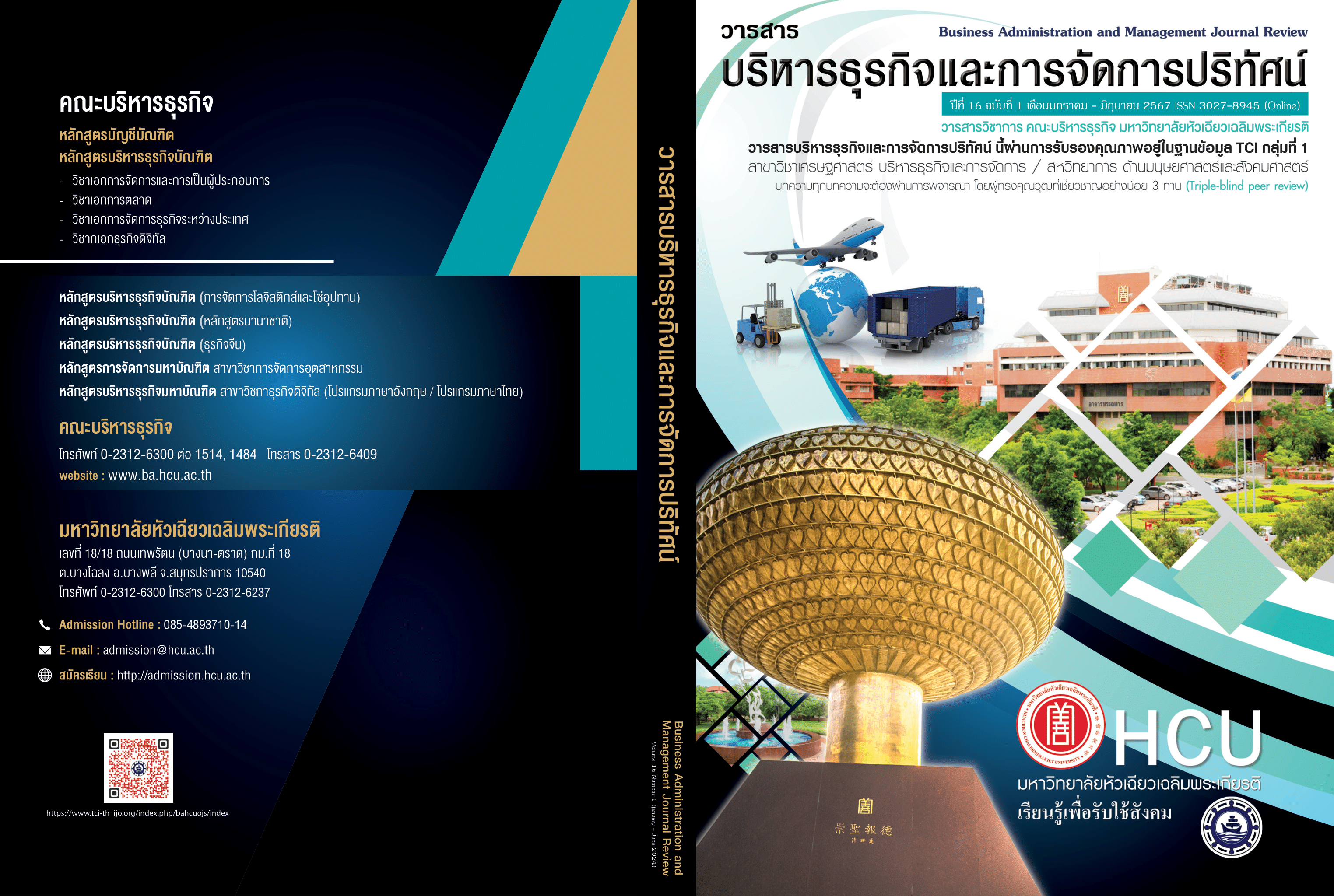Adaptation of Factory Operators 105 and 106 in Thailand for Solid Waste Management in the Situation of the Covid-19 Pandemic
Keywords:
Waste Sorting, Adaptation, Infection, Covid-19, Factory Operators 105 and 106Abstract
The study of adaptation of factory operators 105 and 106 in Thailand for solid waste management in the Covid-19 epidemic. The data from the Department of Pollution Control found that in the year 2021, there were 2.5 million tons of waste generated. It decreased by 1 percent from 2020. The reduced amount of waste is affected by the government policy that controls the entry-exit tourists to Thailand. The decrease in tourists has reduced the amount of waste. By sense, domestic solid waste should be reduced, in fact Working from Home policy causes the increasing of plastic waste from the higher number of consumptions during domestic lock-down In general, whether hazardous waste from the community, general waste, or infectious waste, all of these are major contributors to pollution and environmental problems. Therefore, waste sorting is another method in the waste management process. This makes it easier for the amount of waste to be sorted and passed on to the correct disposal process.
References
กรมควบคุมมลพิษ. (2562). รายงานสถานการณ์มลพิษของประเทศไทย ปี 2562 สถานการณ์ขยะมูล
ฝอยชุมชน ของเสียอันตรายและสารอันตราย. http://www.pcd.go.th/publication/8013/.
กรมพัฒนาพลังงานทดแทนและอนุรักษ์พลังงาน. (2563). ขยะสำคัญที่การจัดการเพื่อให้ได้ทั้งการ กำจัดและพลังงาน. http://webkc.dede.go.th/testmax/node/2108.
ดิเรก ปัทมสิริวัฒน์. (2542). แนวทางการจัดเก็บภาษีสิ่งแวดล้อมในประเทศไทยและข้อวิจารณ์ร่าง พรบ.โรงงาน. วารสารเศรษฐศาสตร์ มหาวิทยาลัยเชียงใหม่, 3(2), 28-49.
ภัทรานิษฐ์ ศรีจันทราพันธุ์ และ อำพรรณ ไชยบุญชู. (2564). การศึกษาปริมาณขยะในครัวเรือนช่วงการแพร่ระบาดของโรคไวรัสโคโรนา 2019. วารสารมนุษยศาสตร์และสังคมศาสตร์มหาวิทยาลัยหอการค้า ไทย, 41(2), 1–17.
วิชชากร จารุศิร. (2555). การจัดการขยะเป็นแหล่งพลังงานด้วยการแปรรูปขยะพลาสติกเป็นน้ำมัน เชื้อเพลิง. วารสารมหาวิทยาลัยศรีนครินทรวิโรฒ(สาขาวิทยาศาสตร์และเทคโนโลยี), 4(7), 125-144.
สมาคมพัฒนาคุณภาพสิ่งแวดล้อม (ประเทศไทย). (2563). ความหมาย/ประเภท/องค์ประกอบและสาเหตุของขยะมูลฝอย. https://adeq.or.th/
สิริลัคน์ สุบงกฎ. (2562). มาตรการทางกฎหมายในการจัดการขยะจากอุปกรณ์ไฟฟ้าและอุปกรณ์ อิเล็กทรอนิกส์กรณีศึกษา:การจัดการขยะทางโทรทัศน์. วารสารนิติศาสตร์บัณฑิต, 12(3), 550-560.
สุจิตรา วาสนาดำรงดี. (2553). สถานการณ์ปัญหาขยะอิเล็กทรอนิกส์. วารสารสิ่งแวดล้อม, 19(3), 1-18.
สุปราณี ศิริอาภานนท์. (2561). การจัดการขยะรีไซเคิล:ประสบการณ์ระดับนานาชาติและการใช้งาน สำหรับประเทศไทย. วารสารรัฏฐาภิรักษ์, 60(1), 103-114.
สำนักสิ่งแวดล้อมกรุงเทพมหานคร. (2562). คู่มือการคัดแยกขยะและการทิ้งขยะ. http://www.bangkok.go.th/upload/user/00000231/data/brochure/thai.pdf.
สำนักสิ่งแวดล้อมกรุงเทพมหานคร. (2558). แนวคิดการจัดการขยะมูลฝอยของนานาประเทศ. http://actionforclimate.deqp.go.th/?p=6741#.
Downloads
Published
How to Cite
Issue
Section
License
Copyright (c) 2024 Business Administration and Management Journal Review

This work is licensed under a Creative Commons Attribution-NonCommercial-NoDerivatives 4.0 International License.
All articles published in the Business Administration and Management Journal Review are copyrighted by the journal.
The views and opinions expressed in each article are solely those of the individual authors and do not represent those of Huachiew Chalermprakiet University or any other faculty members. Each author is fully responsible for the content of their own article. Any errors or issues found are the sole responsibility of the respective author.




